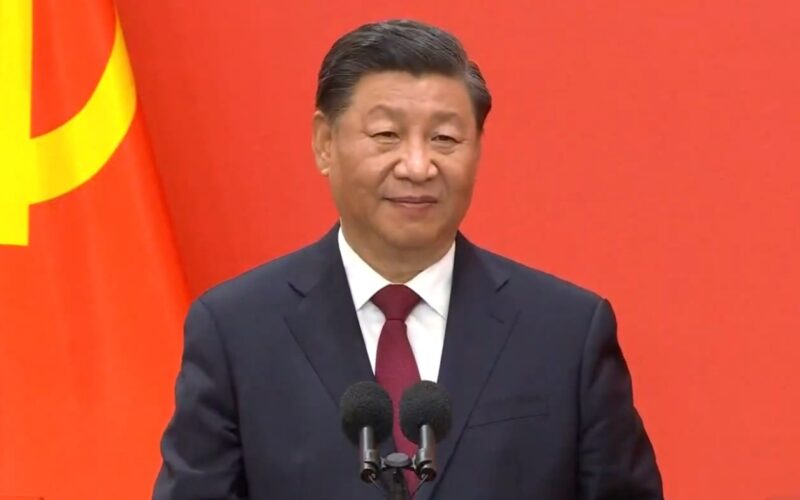
Signing any type of military agreement with an opponent of China is insane, says Alan Emerson.
The big news of the past few weeks is our current trade surplus is $1.4 billion, the highest it’s been since 1960. That’s remarkable and tells me the vital importance of agriculture to our economy. As 1960 was 65 years ago, our achievement is amazing.
That was followed by the KPMG report that told me the sector was worried first about biosecurity, followed by high quality trade agreements with new trading partners.
I agree that we’ll always be vulnerable to biosecurity incursions but I rate the minister responsible, Andrew Hoggard and the Ministry for Primary Industries biosecurity team, and I can’t sing the praises of Trade Minister Todd McClay and his team loud enough.
What worries me on the trade front is the current dialogue concerning China. Last weeks emotive outburst from the United States warning us of an “imminent threat from China” came across as Cold War-era sabre rattling and was totally rejected by China.
I first heard those stories from previous prime minister Robert Muldoon in the 1970s. I rejected them then and continue to do so.
What further concerned me was the news that New Zealand was signing a defence agreement with the Philippines. Why? The Philippines is a strong ally of the US. It is currently in a dispute with China over the South China Sea. Why are we involved?
We hear the commentary about the US being a “traditional ally” but that’s in the past and not remotely relevant today.
I was more than a little surprised to read a briefing from Defence in October last year claiming that “NZ is in strategic alignment with the US”. It was released under the Official Information Act, otherwise we would have been blissfully ignorant of the “alignment”.
I don’t want a strategic alignment with anyone. In addition, the US today is totally different from what it was last war or even last year.
US talk about annexing Greenland, taking back the Panama Canal and making Canada the 51st state suggests to me that China would actually be a more benign partner for us.
In addition, a recent article in the prestigious Atlantic Daily said that traditional US alliances “are now in danger”.
Australian academic Hugh White tells us AUKUS will fail as “US primacy in the West Pacific is unsustainable”. The government has talked about aligning with AUKUS, the Australian, United Kingdom and US agreement largely aimed at countering China.
The Trump tariff war that has included New Zealand has turned the traditional world on its head and is totally irrational.
According to the internationally recognised Daily Telegraph, the US has “already lost the trade war with China”.
The US’s traditional allies in Europe have been told to take a hike with the US increasingly aligned with Russia against Ukraine as evidenced by the recent United Nations vote.
You also couldn’t describe the US economy as healthy. Its debt to GDP ratio is currently at 124%. It must also roll over 33% of that $36 trillion debt in the next 12 months.
Of further interest is that China holds US$859.4 billion of that debt.
Locally the US is withdrawing its aid to the Pacific. The Biden administration promised $800 million for 10 years, which the Trump administration has withdrawn.
China has pledged US$500 million to the World Health Organisation making it the top state donor. The US has withdrawn from the WHO as it has from the Paris Accord.
Finally, when Prime Minister Christopher Luxon met Chinese Premier Xi Jinping late last year he was told that “China is an opportunity partner rather than a challenge or threat”.
So my position is that signing any type of military agreement with an opponent of China is insane. That the Philippines is a strong ally of the US makes it more so.
Our future is in Asia and that includes China and India.
Asia NZ Foundation chief executive Suzannah Jessep tells us Asia is critical to NZ’s future.
Half the world’s population is in Asia. By 2030 it will have 3.2 billion consumers. We’ve many trade agreements with Asian countries and are working on more.
Nigel Stirling wrote an excellent article on the South American based Mercosur trade bloc and our possible future there.
We have other options as well but my position is that the government needs to take trade into account when considering defence agreements. That we need to make decisions based on our own needs and priorities and that means an independent foreign policy, not one governed by the past.
If we are to keep pursuing quality trade agreements as the KPMG report says the sector wants, then we need far more open discussions on defence agreements and foreign policy positions.
Finally, the government has no mandate for its current stupidity. Our trade with the Philippines is but a billion dollars, less than 5% of our trade with China.
You can now read the most important #news on #eDairyNews #Whatsapp channels!!!
🇺🇸 eDairy News INGLÊS: https://whatsapp.com/channel/0029VaKsjzGDTkJyIN6hcP1K

























